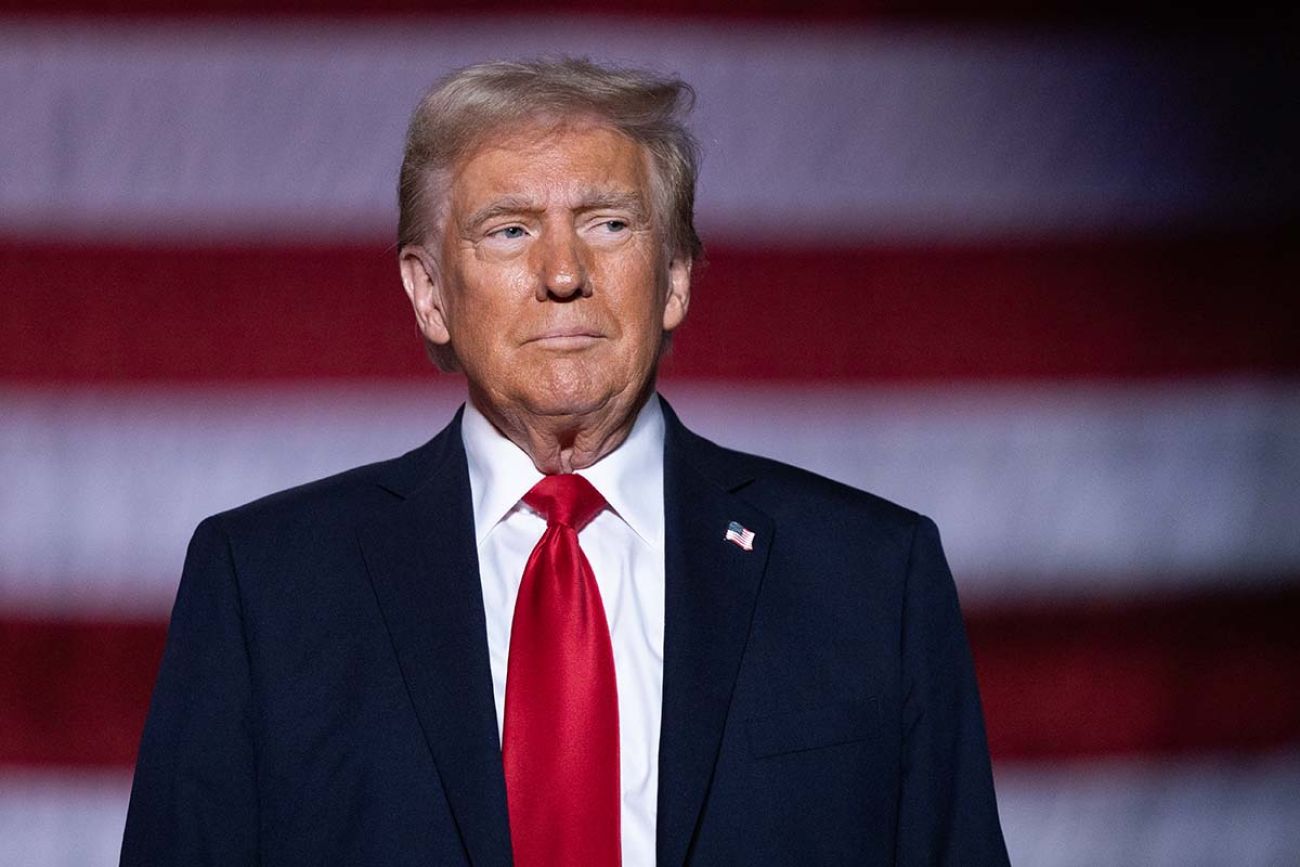Michigan transgender youths to continue high school sports, despite Trump order

- President Donald Trump signed an executive order Wednesday aimed to end transgender girl and women participation in women’s sports
- The NCAA has already said it would comply with the new order
- Michigan state law includes protections against discrimination on the basis of gender identity and sexual orientation
Michigan high school sports officials said Thursday they will not immediately reverse a policy allowing transgender athletes to compete in sports despite a new executive order by President Donald Trump.
Instead, the Michigan High School Athletic Association “is going to continue to go with our policy as is” until officials have “more clarification” on how the president's order interacts with state law, spokesperson Geoff Kimmerly told Bridge Michigan on Thursday.
Michigan lawmakers in 2023 amended the state’s Elliott-Larsen Civil Rights Act to include protections against discrimination on the basis of gender identity and sexual orientation.
Current MHSAA policy allows transgender girls to participate in sports on a case-by-case basis by applying for a waiver. Out of an estimated 175,000 high school athletes across the state, two transgender students currently have waivers, Kimmerly said.
Those two students will be allowed to play sports for now, he added.
Related:
- Trump orders school choice, ‘patriotic’ history. What it means for Michigan
- Experts: Trade tariffs remain threat to US auto industry
- MSU apologizes for canceling Chinese student event after Trump order
“We’re just waiting for the next step I suppose,” Kimmerly said. “Obviously there’s a conflict here, and it’s going to have to be worked out one way or another,” Kimmerly said, referring to the executive order and the state anti-discrimination law.
Trump’s order, which seeks to ban transgender athletes from participating in women’s sports, directs the federal government to “rescind all funds from educational programs that deprive women and girls of fair athletic opportunities, which results in the endangerment, humiliation, and silencing of women and girls and deprives them of privacy.”
It is now US policy “to oppose male competitive participation in women’s sports more broadly, as a matter of safety, fairness, dignity, and truth,” Trump added.
The order could affect K-12 schools and colleges in Michigan, although legal challenges are expected. Connecticut Attorney General William Tong has vowed to fight the executive order.
Michigan Attorney General Dana Nessel, who last week joined fellow Democrats in other states to challenge Trump’s short-lived federal spending freeze in court, has not indicated whether she plans to sue over the transgender sports order. Her office did not immediately respond to a request for comment.
At the collegiate level, decisions on how to respond to Trump’s order on transgender athletes will likely be made by athletic associations, said Dan Hurley, executive officer of the Michigan Association of State Universities.
The National Collegiate Athletic Association, which regulates athletics at many larger universities in Michigan and across the country, said in a Wednesday statement that the organization will work to align its policy with the order.
By Thursday afternoon, the NCAA had updated its policy, effective immediately, to say “A student-athlete assigned male at birth may not compete on a women’s team.”
“We strongly believe that clear, consistent, and uniform eligibility standards would best serve today's student-athletes instead of a patchwork of conflicting state laws and court decisions,” NCAA President Charlie Baker. said in a statement “To that end, President Trump's order provides a clear, national standard.”
He added: "The updated policy combined with these resources follows through on the NCAA's constitutional commitment to deliver intercollegiate athletics competition and to protect, support and enhance the mental and physical health of student-athletes.
Baker recently told Congress that out of the more than 500,000 college athletes across the US, fewer than 10 were transgender.
The National Association of Intercollegiate Athletics (NAIA), which regulates competition for several smaller Michigan colleges, has already banned transgender women from competing in women’s sports if the athletes had undergone hormone therapy.
Michigan Education Watch
Michigan Education Watch is made possible by generous financial support from:
Subscribe to Michigan Education Watch
See what new members are saying about why they donated to Bridge Michigan:
- “In order for this information to be accurate and unbiased it must be underwritten by its readers, not by special interests.” - Larry S.
- “Not many other media sources report on the topics Bridge does.” - Susan B.
- “Your journalism is outstanding and rare these days.” - Mark S.
If you want to ensure the future of nonpartisan, nonprofit Michigan journalism, please become a member today. You, too, will be asked why you donated and maybe we'll feature your quote next time!






